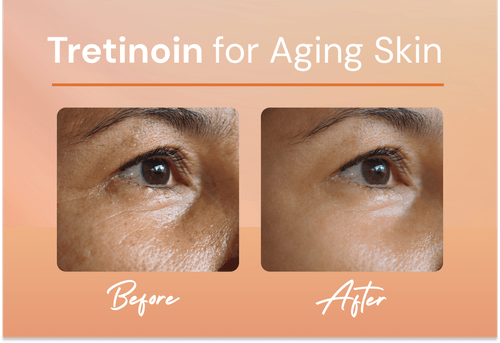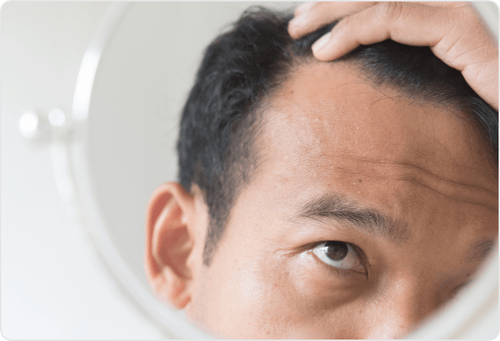Hair loss in menopause: causes and treatment
Menopause is the long-term period of life women enter following their final menstrual cycle. It’s marked by the steep decline of hormone production in the ovaries, including estrogen and progesterone. While menopause technically begins after 12 months without menstruation, the term is often used interchangeably with perimenopause, or a time of menstrual irregularity before final menstruation.
During perimenopause, significant hormonal changes lead to a reduction in the number of ovarian follicles, spherical groups of cells that release eggs during ovulation. These changes, which persist into menopause, can have a significant impact on hair growth, another process governed by hormones.
Is hair loss a symptom of menopause?
Widespread hair loss called telogen effluvium and female-pattern hair loss are more common for women in menopause. Telogen effluvium (TE) presents as rapid hair loss across the scalp, while female pattern hair loss is a more gradual thinning, typically starting with a widening part.
The exact effect of declining estrogen levels on hair growth is unknown, but it’s expected to play a role since pattern hair loss occurs more frequently later in life as women experience the menopausal transition.
New hair in areas associated with male hair growth can also follow the drop in estrogen and progesterone in menopause.
Is hair loss in menopause permanent?
The excessive hair shedding characteristic of telogen effluvium is temporary, but it can take around 6-9 months to notice regrowth. That’s because while the hair is still healthy, more follicles are in the resting phase of the hair growth cycle. Once the cause of TE dissipates — such as a hormonal imbalance — the hair can regrow normally.
Both female and male pattern hair loss are not self-correcting. Treatment is required to achieve new hair growth and prevent further thinning, which impacts men and women as they age.
Treating hair loss in menopause
Minoxidil is a common treatment for thinning hair. Developed over 50 years ago to treat hypertension, minoxidil’s ability to stimulate hair growth has been proven successful in a significant number of cases. Solutions with varied concentrations of the drug have been shown to increase hair density, peaking around one year of use. However, use of minoxidil on women experiencing menopause should be guided by a physician.
Spironolactone is a drug originally formulated to treat congestive heart failure, but it has been shown that it can also be effective in supporting hair growth. Taken either as a pill or applied topically, spironolactone has demonstrated to compound the effects of minoxidil when used in a combined treatment.
Finding expert advice
Are you concerned about hair or skin changes during the menopausal transition? Cortina offers access anytime, anywhere to a board-certified dermatologist who can diagnose thousands of hair, skin and nail conditions and recommend personalized treatment plans based on your symptoms and your unique medical history.
Go to cortinahealth.com to find affordable, accessible care when you need it.



